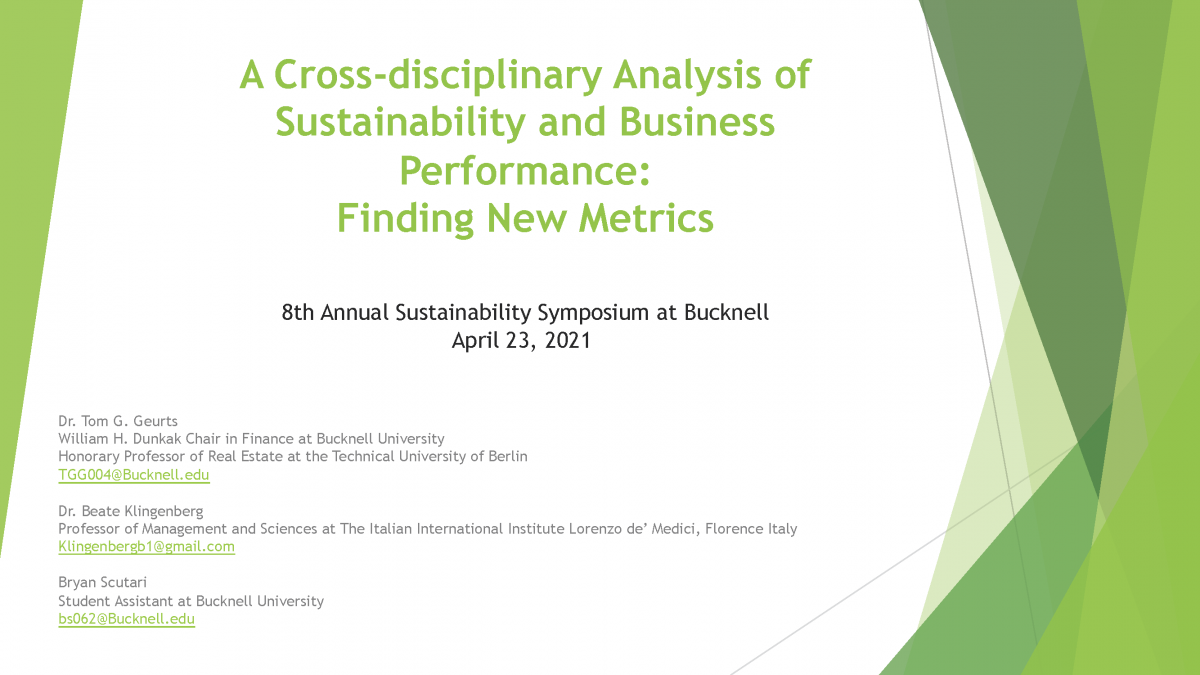Author:
Tom GeurtsCo-Authors:
Beate Klingenberg, Bryan ScutariInstitution:
Bucknell UniversityAbstract
At the intersection of the operations management and financial reporting literature, the importance of impact measurement of activities towards operational excellence has long been recognized. Of specific interest are effects on financial performance of continuous improvement frameworks that target quality (e.g. Total Quality Management (TQM), Six Sigma, ISO9000, Corbett et al., 2005, Chatzoglou et al., 2012), cost efficiencies (e.g. Lean Manufacturing) or combinations thereof; but also environmental management systems (EMS, e.g. ISO14001) and on a more systemic scale, the achievement of sustainability, e.g. the United Nation’s Sustainable Development Goals (SDGs) (Mura et al., 2018). Firms that aspire reaching one of more of these SDGs need to establish sustainable initiatives while simultaneously ensuring long-term corporate viability (Elkington, 1994).
With the introduction of ISO 14001 by the International Standards Organization in 1996, firms receive certification when achieving appropriate Environmental Management Systems – a stepping stone towards systemic sustainability initiatives. One of the benefits of ISO 14001 implementation – besides improved environmental performance – could be improved financial performance, through higher efficiency, less waste, and market signaling (Johnstone and Labonne, 2009). However, the evidence in the literature is inconclusive. Klingenberg, Timberlake, Geurts, and Brown (2013), argued and to a certain account showed, that this could be the result of using the wrong metrics. This follow-up research by Klingenberg, Geurts and a Bucknell student, Bryan Scutari, supported by a generous grant of the Institute of Management Accountants, is now exploring better metrics to measure the impact of ISO 14001 on the financial performance of firms. This oral research presentation discusses the historical development of ISO 14001, analyzes how the implementation of ISO 14001 affects the financial performance of firms, and how that results in the development of appropriate metrics.
